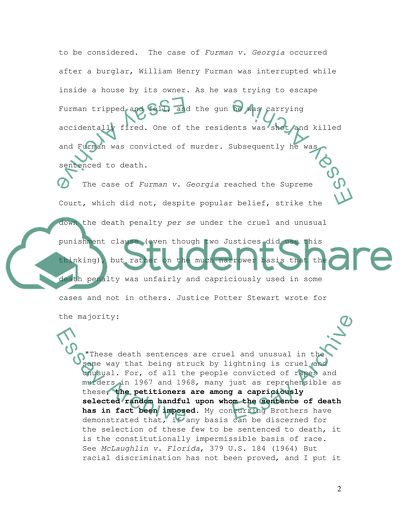Cite this document
(“Capital Punishment/Death Penalty Essay Example | Topics and Well Written Essays - 2500 words”, n.d.)
Capital Punishment/Death Penalty Essay Example | Topics and Well Written Essays - 2500 words. Retrieved from https://studentshare.org/miscellaneous/1527466-capital-punishmentdeath-penalty
Capital Punishment/Death Penalty Essay Example | Topics and Well Written Essays - 2500 words. Retrieved from https://studentshare.org/miscellaneous/1527466-capital-punishmentdeath-penalty
(Capital Punishment/Death Penalty Essay Example | Topics and Well Written Essays - 2500 Words)
Capital Punishment/Death Penalty Essay Example | Topics and Well Written Essays - 2500 Words. https://studentshare.org/miscellaneous/1527466-capital-punishmentdeath-penalty.
Capital Punishment/Death Penalty Essay Example | Topics and Well Written Essays - 2500 Words. https://studentshare.org/miscellaneous/1527466-capital-punishmentdeath-penalty.
“Capital Punishment/Death Penalty Essay Example | Topics and Well Written Essays - 2500 Words”, n.d. https://studentshare.org/miscellaneous/1527466-capital-punishmentdeath-penalty.


